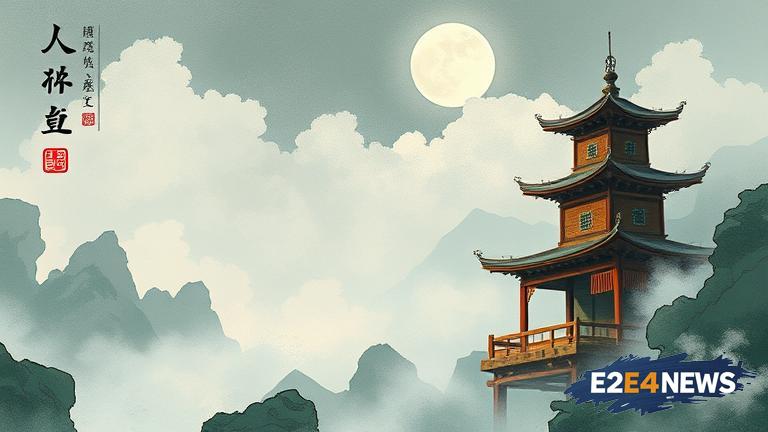Ancient Chinese literature is a treasure trove of wisdom, philosophy, and artistic expression, spanning over 3,000 years. From the classic works of Confucius to the poetic masterpieces of Li Bai, Chinese literature has played a significant role in shaping the country’s culture and identity. The earliest forms of Chinese literature date back to the Shang Dynasty, where oracle bones and bronze inscriptions revealed the beginnings of a written language. As Chinese civilization evolved, so did its literature, with the emergence of great philosophers like Laozi and Zhuangzi, who laid the foundations for Taoist thought. The Qin and Han dynasties saw the rise of historical records, such as the ‘Records of the Grand Historian,’ which chronicled the lives of emperors and notable figures. The Tang Dynasty, often regarded as the ‘Golden Age’ of Chinese literature, produced some of the most celebrated poets in Chinese history, including Du Fu and Bai Juyi. Their works not only reflected the social and political climate of the time but also showcased the beauty and elegance of the Chinese language. The Song Dynasty, on the other hand, was marked by the development of ci poetry, a unique form of lyrical verse that emphasized emotion and imagery. The Mongol conquest of China in the 13th century introduced foreign influences, leading to the creation of new literary forms, such as the novel and the play. One of the most famous Chinese novels, ‘Journey to the West,’ was written during this period, telling the epic tale of Monkey King Sun Wukong’s adventures. The Ming and Qing dynasties saw a resurgence of classical learning, with scholars like Gu Yanwu and Huang Zongxi making significant contributions to the field of literature. The 20th century brought about a new era of Chinese literature, with writers like Lu Xun and Mao Dun addressing the social and political issues of the time. Today, Chinese literature continues to evolve, incorporating modern themes and styles while remaining rooted in its rich cultural heritage. Despite the challenges posed by language barriers and cultural differences, ancient Chinese literature remains a vital part of world literature, offering insights into the human experience and the complexities of Chinese culture. Its influence can be seen in the works of authors from other countries, who have drawn inspiration from Chinese classics and incorporated elements of Chinese thought into their own writing. As a result, ancient Chinese literature has become an essential component of comparative literature studies, allowing scholars to explore the similarities and differences between literary traditions from around the world. Furthermore, the study of ancient Chinese literature has also led to a greater understanding of Chinese history, philosophy, and art, highlighting the interconnectedness of these disciplines. In recent years, there has been a growing interest in translating ancient Chinese texts into other languages, making them more accessible to a global audience. This effort has not only helped to promote cultural exchange but also facilitated a deeper appreciation for the beauty and significance of ancient Chinese literature. In conclusion, ancient Chinese literature is a vast and fascinating field that offers a unique window into the culture, history, and philosophy of China. Its rich and varied heritage continues to inspire and educate readers around the world, ensuring its relevance and importance in modern times. With its timeless themes, exquisite language, and profound insights, ancient Chinese literature remains an essential part of human cultural heritage, deserving of study, appreciation, and celebration. The significance of ancient Chinese literature extends beyond the realm of literature itself, influencing art, music, film, and other creative fields. Its impact can be seen in the works of artists, musicians, and filmmakers who have drawn inspiration from Chinese classics, incorporating elements of Chinese aesthetics and philosophy into their work. As a result, ancient Chinese literature has become an integral part of the global cultural landscape, shaping our understanding of the world and our place within it. Ultimately, the study and appreciation of ancient Chinese literature offer a rewarding and enriching experience, allowing readers to engage with the complexities and nuances of Chinese culture and to gain a deeper understanding of the human experience.
